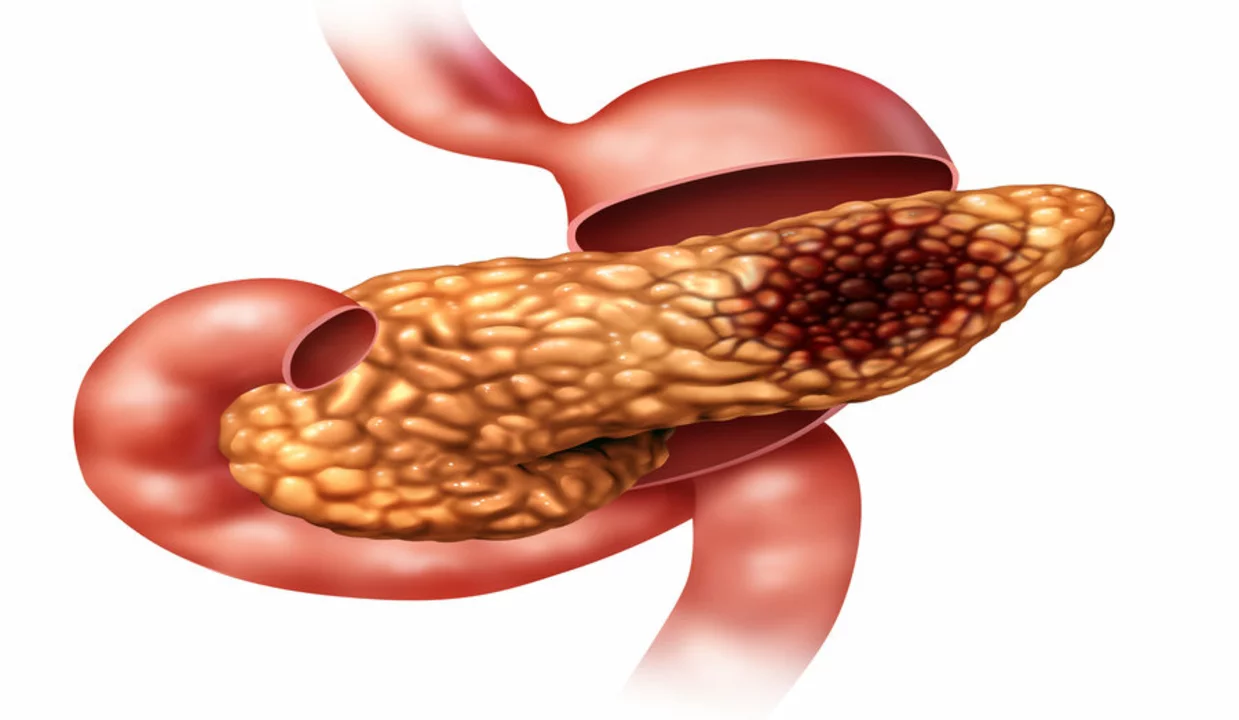Understanding Pancreatic Cancer in Children and Young Adults
Pancreatic cancer is a rare occurrence in children and young adults, but it is essential to be aware of its existence and how it can affect this age group. In this section, we will discuss the basic information about pancreatic cancer, including its different types and how it develops in the pancreas. By understanding the nature of this disease, we can better comprehend its impact on children and young adults and be prepared to recognize its signs and symptoms.
There are two main types of pancreatic cancer: exocrine and endocrine. Exocrine tumors are the most common and are usually malignant, while endocrine tumors are rarer and can be benign or malignant. Pancreatic cancer occurs when cells in the pancreas begin to grow uncontrollably and form tumors. These tumors can then invade nearby tissues and organs, eventually spreading to other parts of the body through a process called metastasis.
Factors That Increase the Risk of Pancreatic Cancer
Although pancreatic cancer is rare in children and young adults, certain factors can increase the risk of developing this disease. These factors include genetic mutations, family history, and certain medical conditions. In this section, we will delve deeper into these risk factors and explore how they can contribute to the development of pancreatic cancer.
Genetic mutations, such as those associated with the BRCA2 gene, can increase a person's risk of developing pancreatic cancer. Additionally, a family history of pancreatic cancer or other related cancers can also increase the risk. Medical conditions such as chronic pancreatitis, diabetes, and obesity have been linked to an increased risk of pancreatic cancer in adults, but it is unclear if these same factors contribute to the risk in children and young adults.
Signs and Symptoms of Pancreatic Cancer
Recognizing the signs and symptoms of pancreatic cancer in children and young adults can be challenging due to the rarity of the disease and the fact that many symptoms are nonspecific. In this section, we will discuss the most common symptoms associated with pancreatic cancer and how they can present in children and young adults.
Some of the most common symptoms of pancreatic cancer include abdominal pain, jaundice (yellowing of the skin and eyes), unexplained weight loss, and digestive problems such as nausea, vomiting, and diarrhea. These symptoms can also be indicative of other, more common conditions in children and young adults. However, if these symptoms persist or worsen, it is essential to consult a healthcare professional for further evaluation.
Diagnosis and Staging of Pancreatic Cancer
Diagnosing pancreatic cancer in children and young adults can be a complex process due to the rarity of the disease and the potential for overlapping symptoms with other conditions. In this section, we will discuss the various diagnostic tests and procedures used to confirm a pancreatic cancer diagnosis and determine the stage of the disease.
Diagnostic tests for pancreatic cancer may include blood tests, imaging studies such as CT scans or MRIs, and biopsies. A biopsy involves obtaining a small sample of tissue from the pancreas to examine under a microscope for cancerous cells. Once a diagnosis has been confirmed, the cancer will be staged based on the size of the tumor, the extent of its spread, and other factors. This information is crucial for determining the most appropriate treatment options.
Treatment Options for Pancreatic Cancer in Children and Young Adults
The treatment of pancreatic cancer in children and young adults can vary depending on the type and stage of the disease, as well as the patient's overall health and preferences. In this section, we will discuss the most common treatment options available for pancreatic cancer and how they may be tailored to meet the unique needs of children and young adults.
Treatment options for pancreatic cancer may include surgery, radiation therapy, chemotherapy, targeted therapy, and immunotherapy. In some cases, a combination of these treatments may be recommended. For children and young adults, it is essential to consider the potential short-term and long-term side effects of these treatments, as well as their impact on growth and development. A multidisciplinary team of healthcare professionals, including oncologists, surgeons, and pediatric specialists, will work together to develop the most appropriate treatment plan for each patient.
Supporting Children and Young Adults with Pancreatic Cancer
Supporting a child or young adult with pancreatic cancer can be an emotional and challenging journey for families and caregivers. In this section, we will explore some of the resources and strategies that can help families cope with the emotional, physical, and practical aspects of caring for a child or young adult with pancreatic cancer.
Seeking support from healthcare professionals, counselors, and support groups can be beneficial for families navigating the challenges of a pancreatic cancer diagnosis. In addition, maintaining open communication with the child or young adult about their feelings and concerns can help to alleviate some of the emotional burdens associated with the disease. Finally, focusing on maintaining a sense of normalcy and routine, as well as engaging in enjoyable activities, can provide a sense of stability and comfort for children and young adults undergoing treatment for pancreatic cancer.


Post A Comment